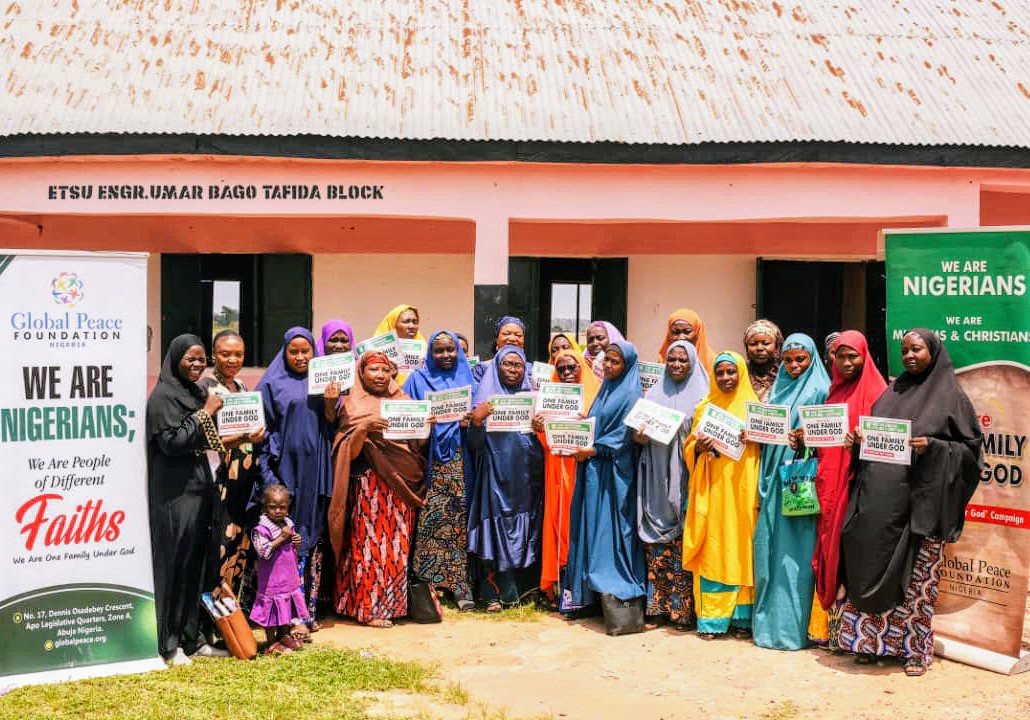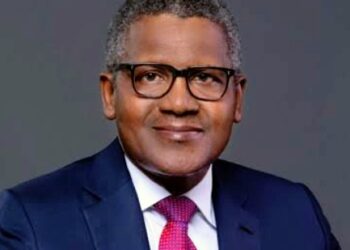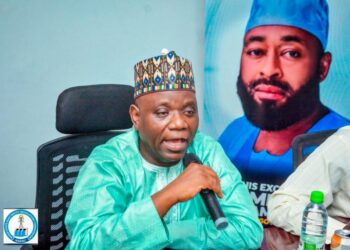Global Peace Foundation Nigeria Calls for Action Against Sexual Violence in Conflict
From Our Correspondent
The Global Peace Foundation Nigeria (GPFN) has called for collective action to end sexual violence in conflict, describing it as a “deliberate and destructive weapon used to instill fear, punish communities, and break the very fabric of society.”
Rev. John Joseph Hayab, the Country Director of GPFN, made this call during an event organized to commemorate the International Day for the Elimination of Sexual Violence in Conflict, held in Lapai Local Government Area of Niger State.
Hayab, who was represented by the organization’s Youth and Education Development Officer, Rimpyen Danjuma Yohan, stated that sexual violence in conflict is not merely a physical violation but also an assault on dignity, humanity, and peace.
“Let us commit to building a society where conflict does not equate to cruelty, and where every person can live free from fear and violence, with dignity,” he said. “There can be no justification—be it cultural, political, or religious—for sexual violence.”
Hayab pointed out that sexual violence affects women, girls, men, boys, and infants, leaving long-lasting emotional scars that often go unspoken.
He noted that the trauma caused by this violence frequently remains unaddressed, particularly in rural areas, especially in light of Nigeria’s ongoing challenges such as insurgency, communal conflicts, banditry, kidnapping, and terrorism.
He urged young people to stand up, speak out, and reject any culture that excuses violence. He also called on parents to instill respect over dominance and encouraged policymakers to prioritize survivors through supportive laws and services.
The Country Director urged Nigerians to unite and declare “Enough is enough” to violence against women and girls, emphasizing the organization’s vision of being “one family under God.”
Other notable speakers included Prof. Juliana Dauda, Executive Director of the Gender Advocacy and Development Initiative at Ibrahim Badamasi Babangida University, Lapai; Alhaji Abubakar Taka Umar, Executive Director of Operations at the Niger State Emergency Management Agency; Alhaji Ahmed Mohammed, Director of the National Orientation Agency in Lapai; and Barrister Maryam Bello, among others.
They emphasized the importance of expanding educational opportunities as a strategy to mitigate communal conflict and gender-based violence (GBV) in rural communities.
The discussions explored the causes of GBV and communal conflict, their interconnection, and how education can drive societal change and transformation.
Rev. Fr. Zachariah Athanasius Kanwai also presented a lecture on the Importance of Peaceful Coexistence in a Multi-Religious Community, highlighting the need for peaceful coexistence and the protection of fundamental human rights.
Several participants expressed their commitment to speaking out against every form of gender-based violence within their families, communities, and society at large.
The event successfully brought together traditional, community, and religious leaders, government officials, academics, and other key stakeholders.


















